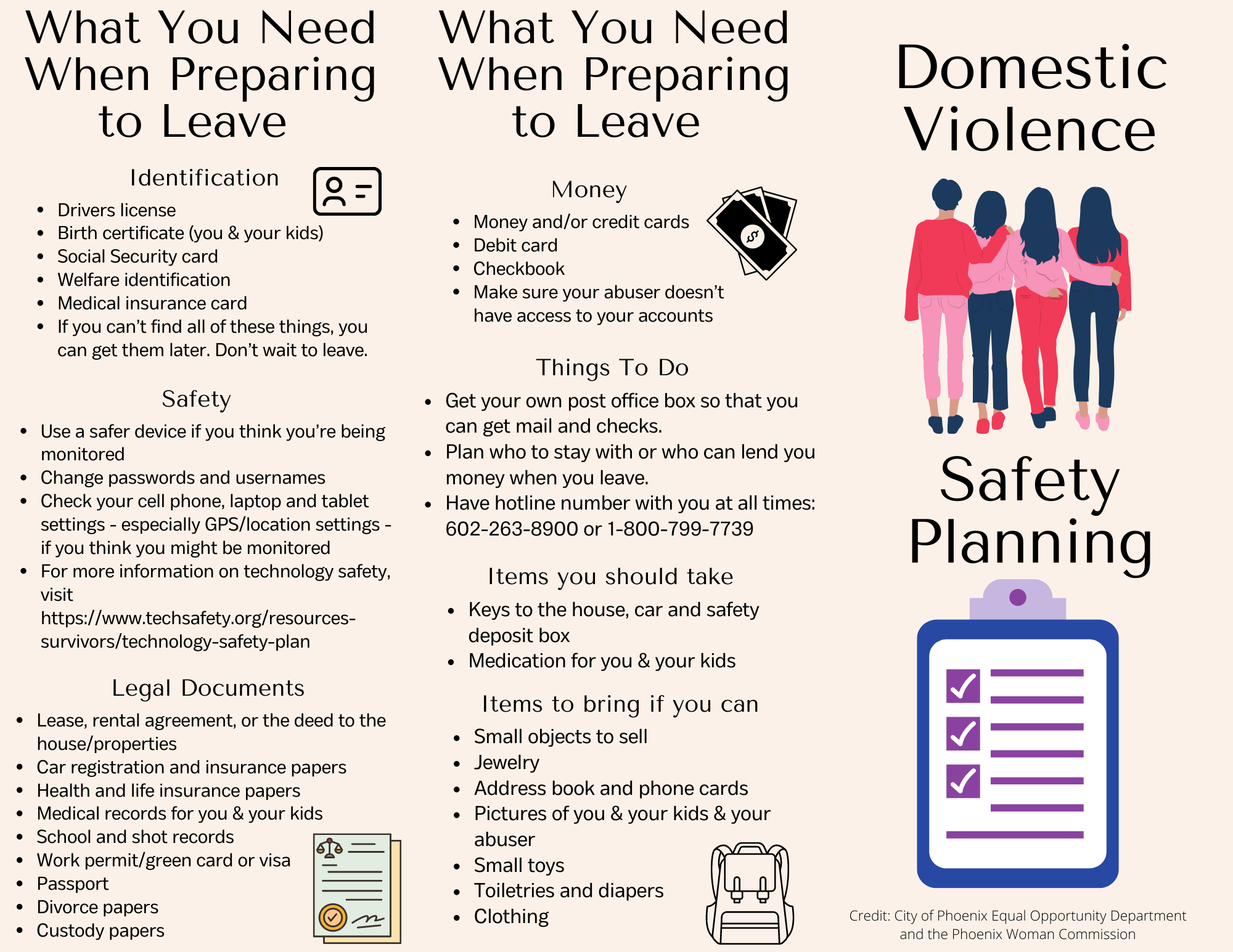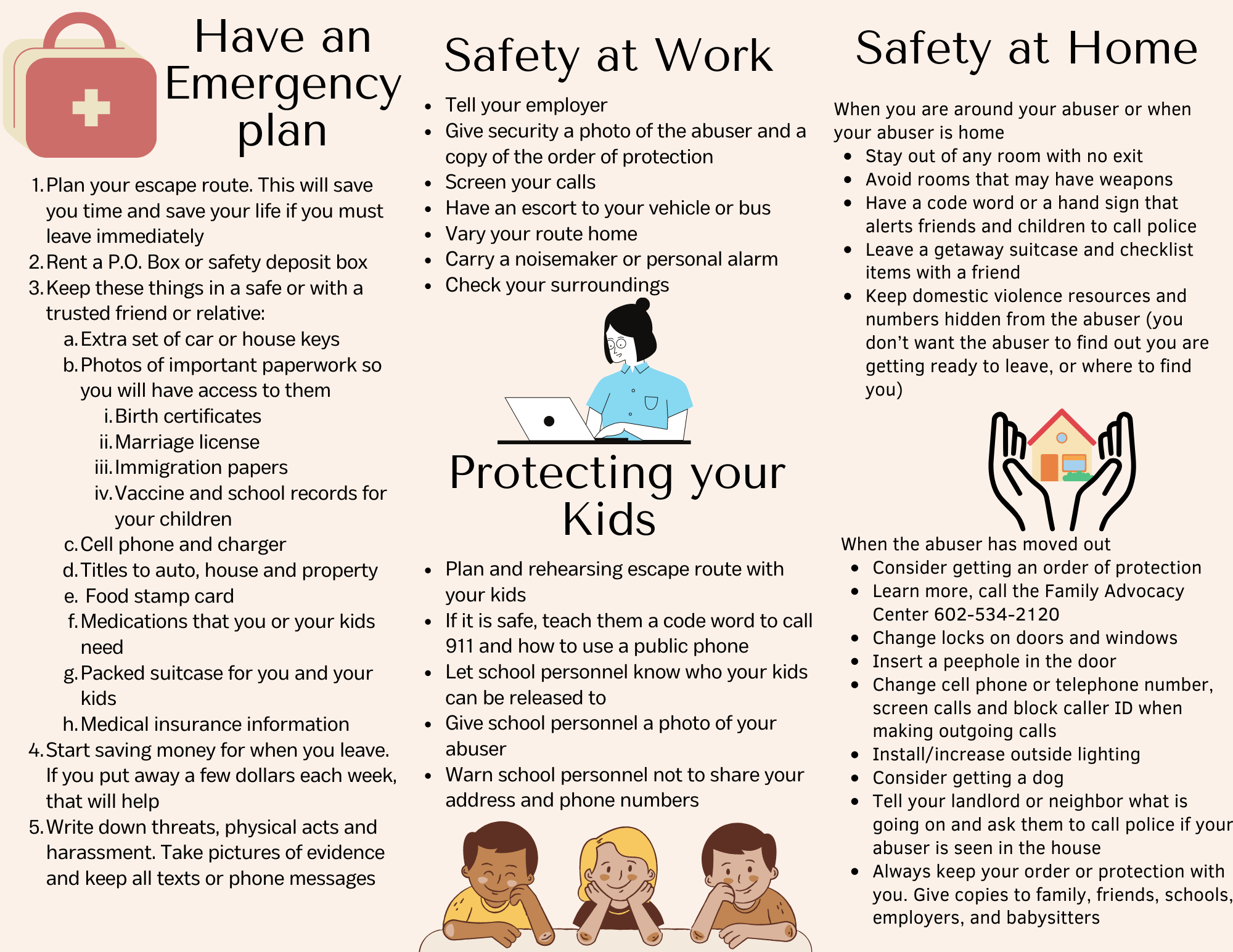
Improving wellbeing through low-literacy resources
Heather Ross, ASU Edson College of Nursing and Health Innovation
Background
Many individuals who need crisis services are part of one or vulnerable groups and disproportionately likely to have low literacy skills. As a result, individuals served by the crisis response program need additional support to access resources and build resilience skills to break the cycle of vulnerability to repeated crisis. For people with low literacy, the written resources currently disseminated by the crisis response team are less likely to be accessible and thus less effective to support resilience for vulnerable residents.
We know from health services research that when people with low literacy skills are going through a stressful time, they have better outcomes with information is presented using simple language and meaningful graphics. Therefore, we sought to apply this evidence to practice by first, developing simple-language and pictorial resources for people who experience crisis; second, training the City of Phoenix Community Assistance Program staff and volunteers how to recognize and meet the information needs of people with low literacy skills; and third, providing low-literacy crisis response materials in a variety of printed and digital forms so that people can access information using the written or digital technologies that work best for them.
Research questions
How do crisis response resources designed for people with low literacy skills impact short-term and long-term resilience for victims of traumatic events?
Methods and findings
We analyzed the full library of crisis response resources (i.e. handouts, information packets) currently in use by the Phoenix Fire Department’s Community Assistance Program. Each document was assessed for reading level, noting a best practice goal for public communication resources to be at or below a 5th grade reading level.
For resources that were at a higher reading level, we modified the text to use simpler language without losing any of the content or meaning of the material.
Next, using simplified language versions, we reformatted text-heavy documents to incorporate meaningful images in line with evidence-based best practices for health communication to vulnerable low-literacy populations.
Partners
Phoenix Fire Department – Community Assistance Program
Impact
This project matters because up to 1/5 of people in the City of Phoenix may have low literacy skills that make it difficult for them to absorb complex information about health and community resources, particularly in times of crisis. In order to provide crisis victims with the recovery information that they need, that information must be in a format that they can use.
Deliverables
We developed a companion low literacy collection of crisis response materials using simple language and meaningful images in English and Spanish to mirror the existing library of resources used by the City of Phoenix Community Assistance Program. This collection will be deployed by City of Phoenix crisis responders in the course of their work in the field.
Heather Ross
Clinical Associate Professor
Edson College - Doctor of Nursing Practice, School for the Future of Innovation in Society Faculty, Global Futures Scientists and Scholars
Academic Fellow, 2022
Heather M. Ross, PhD, DNP, ANP-BC, FAANP, is a Clinical Associate Professor at Arizona State University jointly appointed in the Edson College of Nursing and Health Innovation and the College of Global Futures School for the Future of Innovation in Society. Her teaching and research focuses on health policy, science and technology policy, and health equity. She serves as Special Advisor to Phoenix Mayor Kate Gallego focusing on issues related to public health and health equity. Dr. Ross maintains a clinical practice as a nurse practitioner in cardiac electrophysiology.


